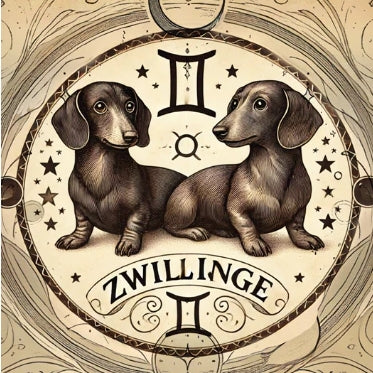The Dalmatian, known for its distinctive black or brown markings, is one of the most recognizable dog breeds in the world. With its distinctive appearance and lively nature, it has earned a reputation as both a working dog and a family companion. Originally native to the Dalmatia region of Croatia, the Dalmatian has evolved over the centuries from a carriage dog to a popular companion dog.
Origin and history of the Dalmatian
The Dalmatian has a long and exciting history. Its roots lie in Dalmatia, a region in present-day Croatia, and it was originally bred as a carriage dog. The Dalmatian was ideally suited to escorting carriages, both clearing obstacles and providing protection. In the 18th and 19th centuries, Dalmatians also began to play an important role as a firefighter breed. They escorted fire engines, secured the roads, and guarded equipment. Especially in the era of horse-drawn carriages, the Dalmatian was indispensable, serving as both a guard dog and a swift companion.
The appearance of the Dalmatian
Dalmatians are instantly recognizable by their unique white coat with black or brown spots. Their muscular, athletic build and elegant, slender legs make them one of the most striking dog breeds. Standing at approximately 50-60 cm at the shoulder and weighing 20-30 kg, Dalmatians are considered medium-sized dogs. Their distinctive coat pattern is a trademark of the breed and makes them real eye-catchers.
The Dalmatian's coat is short and dense, making it relatively easy to care for. However, during the shedding season, the dog can shed heavily, so regular brushing is recommended to remove loose fur. The Dalmatian's coat is also known for its glossy shine when exposed to direct sunlight.
Character and temperament
Dalmatians are intelligent, lively, and very energetic. They are alert and playful, making them excellent companions for active families. Despite their tireless play and exercise, Dalmatians are not dogs who constantly seek center stage. Their loyalty and strong will to work also make them excellent working dogs, but these traits can also lead to training challenges.
Dalmatians are highly independent and therefore require consistent training. They are intelligent and learn quickly, but can also be stubborn and assertive if not properly challenged. Training a Dalmatian should begin with positive reinforcement and consistent leadership from the very beginning. Early socialization is very important for Dalmatians to get along well with other animals and people.
Education and training
Dalmatians are challenging to train due to their intelligence and energy. They are naturally very active and need regular mental and physical challenges. It's important to keep training varied and exciting to keep their attention and encourage their intelligence. Positive reinforcement, such as treats, toys, or praise, helps reward desired behavior.
Because Dalmatians have a strong hunting instinct, special attention should be paid to a reliable recall. Training impulse control is also crucial to curbing their urge to chase other animals. Those who work with a Dalmatian will be rewarded with a faithful, loyal dog capable of impressive performances—whether in dog sports, search games, or as a companion on long walks.
Health and life expectancy
Dalmatians are generally healthy dogs, but they are prone to some health problems that should be considered. One of the most common conditions in Dalmatians is deafness , which affects a significant number. Deafness is often congenital in Dalmatians and particularly affects dogs with a white coat. Other health concerns can include bladder stones , as Dalmatians tend to produce high levels of uric acid, which can lead to this condition.
It's important to have Dalmatians regularly examined by a veterinarian to detect early signs of deafness or other health problems. Skin problems and allergies can also occur, especially due to the white parts of the coat, which can be more sensitive to environmental influences. The life expectancy of a Dalmatian is typically around 12-14 years .
Nutrition of the Dalmatian
Dalmatians have higher energy requirements due to their active nature, so it's important to provide a balanced diet that meets the dog's individual needs. A high-quality dry food for active dogs provides a good foundation. However, care should be taken to ensure the food is not too high in fat to prevent obesity and protect joints.
Special care should be taken when feeding them protein and fat , as Dalmatians are prone to bladder stones. A balanced, protein-rich diet with lean meat and few grains will help promote their health and provide them with the energy they need to stay active and fit.
Care of the Dalmatian
A Dalmatian's grooming needs are relatively low, as their short coats don't require any special attention. Regular brushing, especially during shedding, helps remove dead hair and keep the coat shiny. The Dalmatian's long ears should be checked regularly for infections and cleaned as needed to prevent problems.
Dental care and regular nail clipping are also important aspects of Dalmatian care to prevent health problems.
Activities and exercise
Dalmatians are energetic dogs who need plenty of exercise and mental stimulation. At least 1-2 hours of exercise per day are necessary to replenish their excess energy needs. Walks, fetch and search games, and dog sports like agility are excellent ways to keep your Dalmatian physically and mentally active.
The Dalmatian as a family dog
Dalmatians can be great family dogs if their needs for exercise and social interaction are met. They are generally friendly, playful, and good with children, but their energy and desire for activity should be monitored. In households with other animals, Dalmatians should be well socialized, especially if there are already pets in the household.
However, due to their strong hunting instinct, Dalmatians are less suitable for households with small animals such as rabbits or hamsters.
Conclusion
The Dalmatian is a strong-willed, energetic, and charming breed that demands a lot of love and devotion from its owner. With proper training, plenty of exercise, and mental stimulation, the Dalmatian will become a loyal companion who will enrich their family in many ways. Anyone willing to give their Dalmatian physical and mental stimulation will have a loyal, intelligent, and lovable dog by their side.
Products for Dalmatian fans
Check out our selection and enrich your Dalmatian's life with products that are both functional and stylish!




